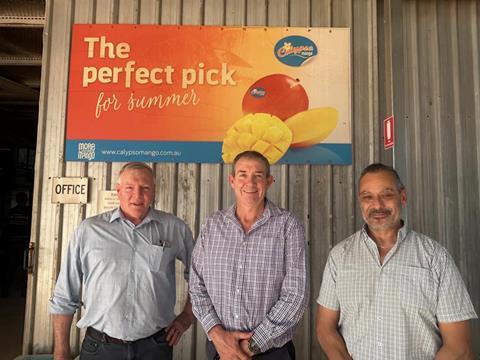Newly endorsed protocol replaces the previous trial agreement between the states and allows some varieties access under alternative fruit fly treatment
The Northern Territory has announced a new agreement locking in long-term access to the Western Australian market for the state’s mango production.

The newly endorsed Interstate Certification Assurance (ICA) protocol, ICA-69, replaces the previous trial agreement between the states, known as CTM-01, while the existing CTM-01 agreement will continue to apply for exports to South Australia.
The ICA-69 protocol allows four major mango varieties Honey Gold, R2E2, Calypso, and Kensington Pride to be exported into the state using an alternative fruit fly treatment option which manages fruit fly risk. Growers must spray their trees before harvest, carefully inspect fruit for any signs of pests, and only send mangoes that are hard, mature, and of Class 1 quality.
Vapour Heat Treatment, where mangoes are gently heated with warm, moist air to kill fruit fly pests before transport, remains an option for all mango varieties.
The announcement came as Northern Territory mango growers gathered for the Australian Mangoes pre-season roadshow, which was held in Darwin on 11 August at Acacia Hills Farm and in Katherine on 12 August at Niceforo Farms.
The state’s minister for agriculture and fisheries, Gerard Maley, said the approval of ICA-69 was a game-changer for Territory growers.
“The Northern Territory harvests the majority of Australia’s mango crop, producing 52 per cent of the nation’s mangoes in the 2024/25 season, that’s 27,500 tonnes or 3.9mn trays picked from orchards stretching between Darwin and Mataranka,” he said.
“The industry contributes an estimated A$100mn to the Northern Territory economy each year and supports around 2,500 local, national and international workers during harvest.”
Maley added that by securing market access and investing in research into Mango Twig Tip Dieback, the government was safeguarding the long-term viability of the state’s mango industry.
“Northern Territory mangoes are world class, and securing national market access ahead of the 2025 season is a credit to chief plant health officer Sally Heaton and her team,” he said. “Their work on this new ICA, backed by national biosecurity support and scientific rigour, is greatly appreciated.”
As part of the pre-season roadshow, researchers from NT DAF will update growers on the latest trials to manage Mango Twig Tip Dieback (MTTD).
The disease was first identified in 2017, causing branch death, tree decline and significant crop losses, with the Northern Territory Farmers Association estimating annual losses of up to A$7mn to the Darwin mango industry.
To tackle this, the state government is investing A$500,000 a year over two years in a nationally co-developed research programme focused on an integrated management approach, led by NT DAF in partnership with industry bodies and researchers across the country.



